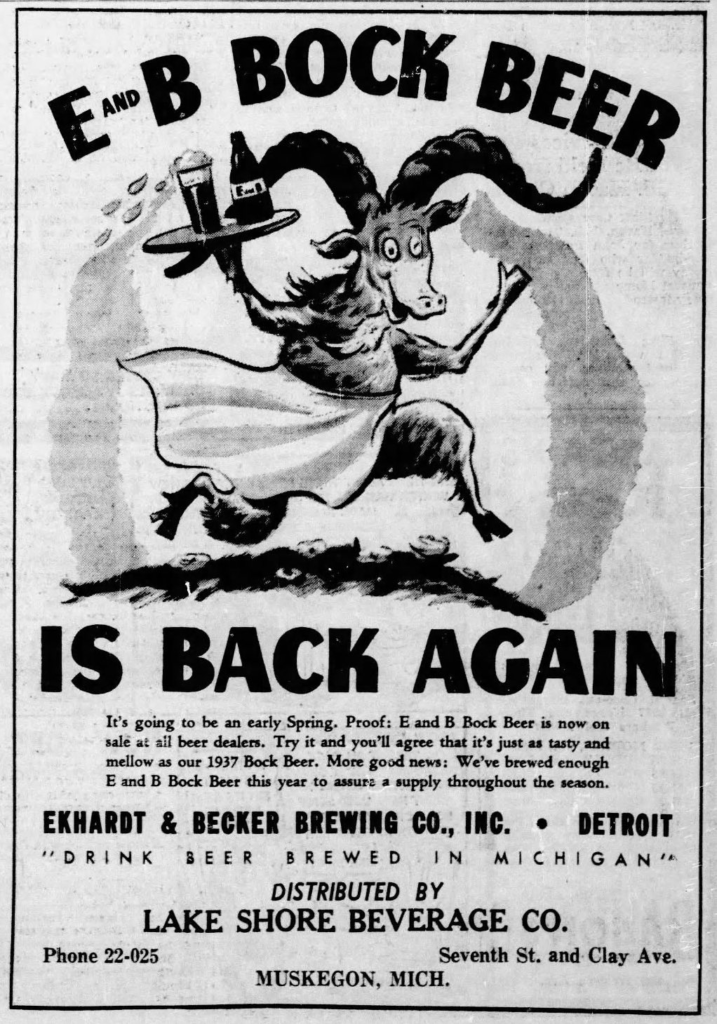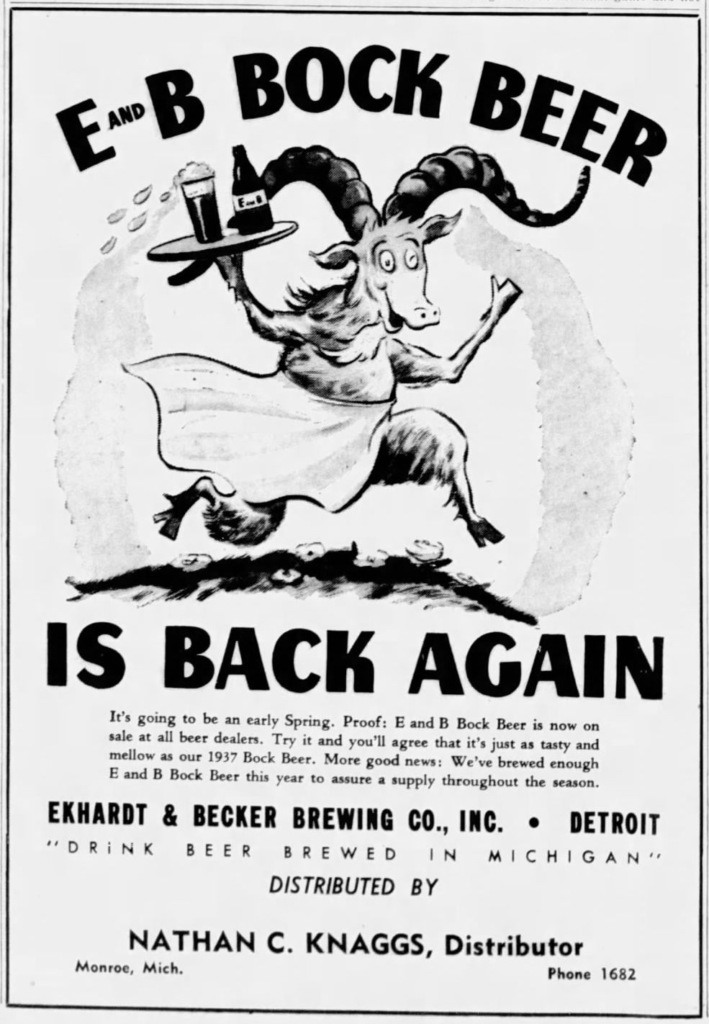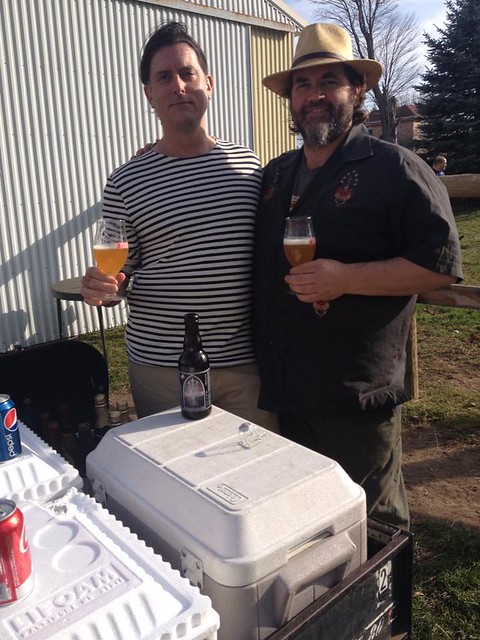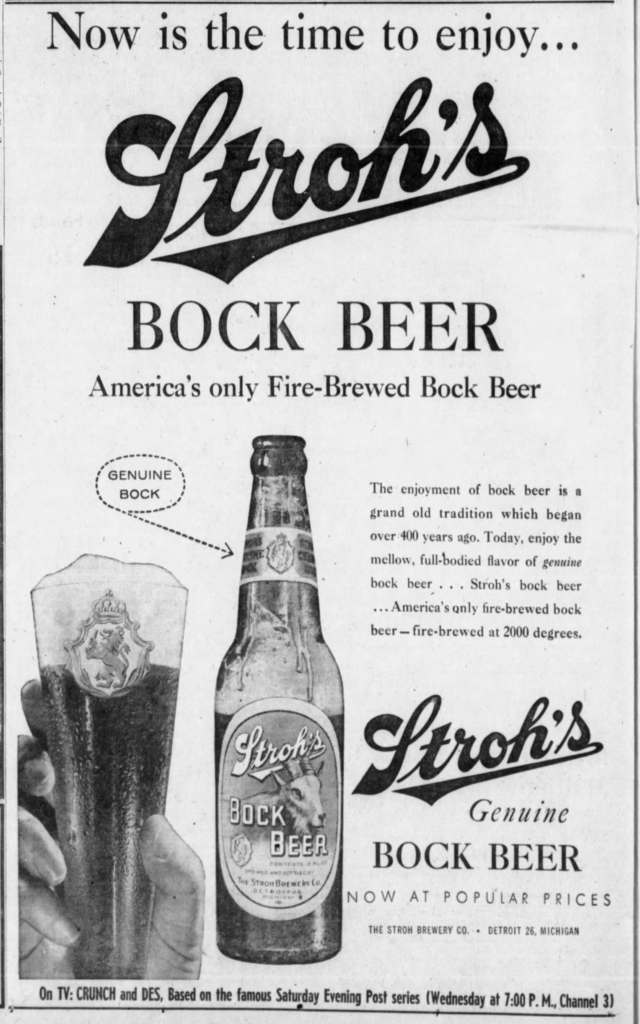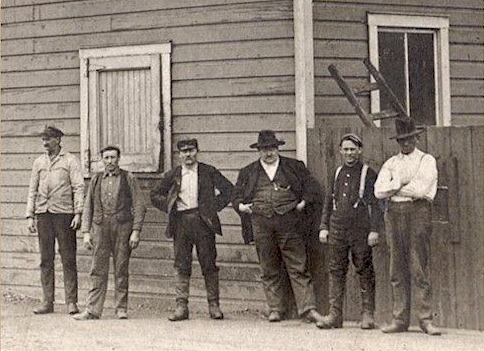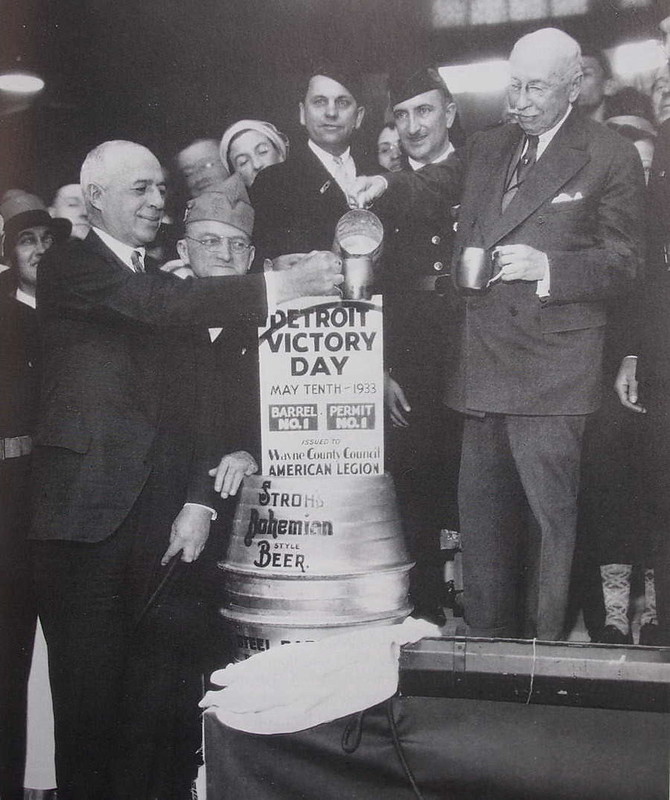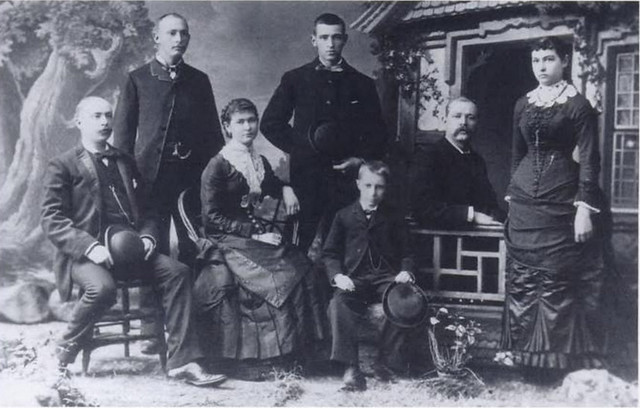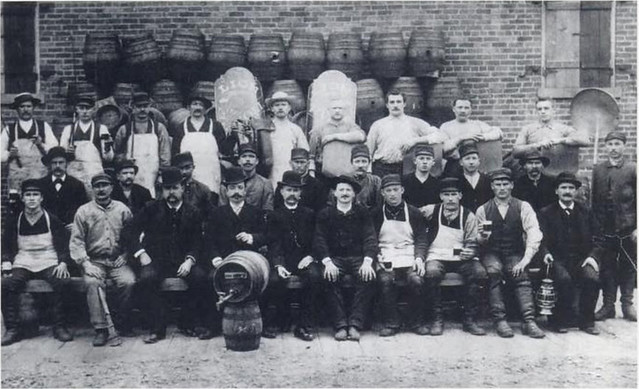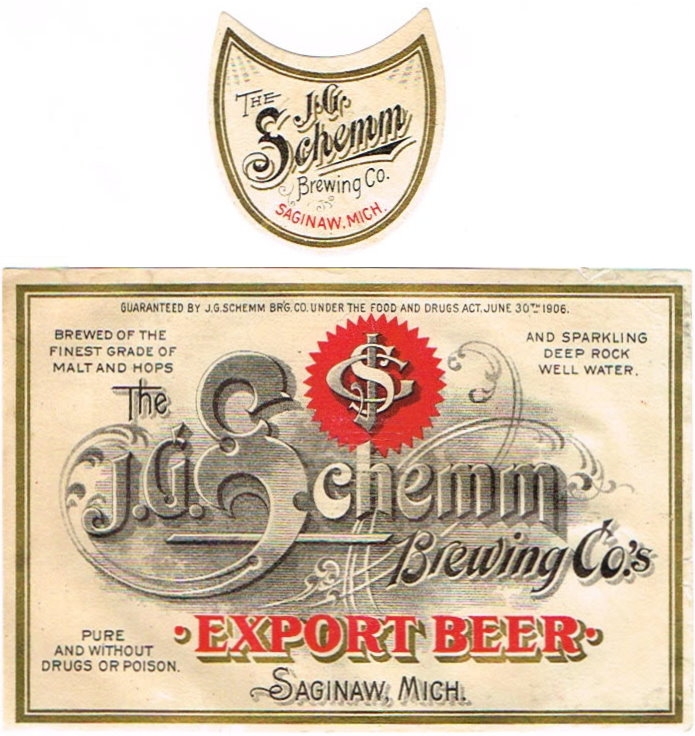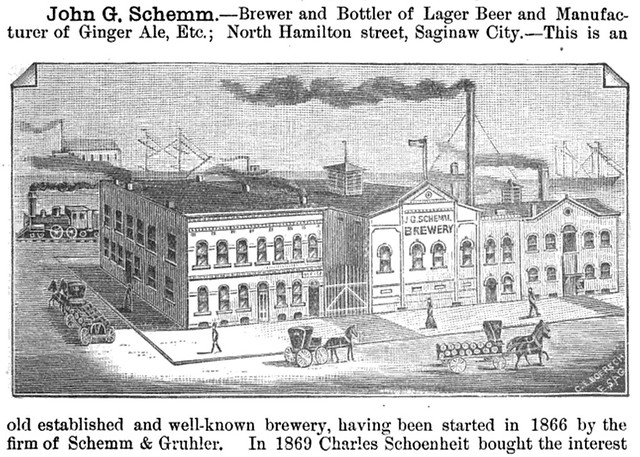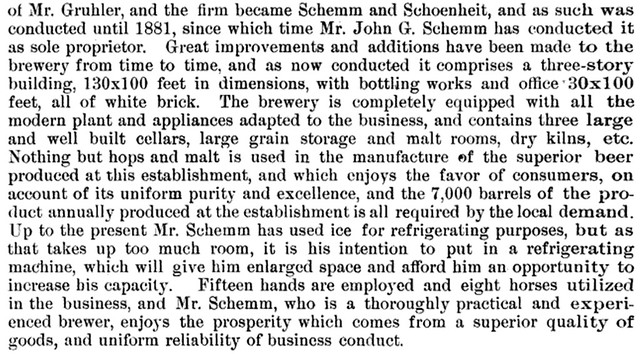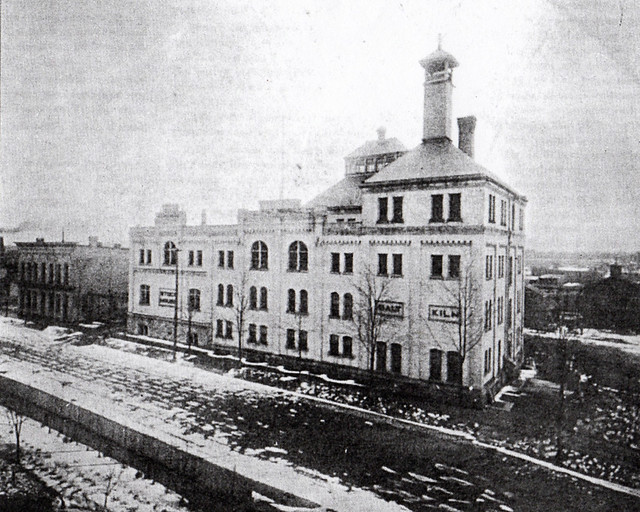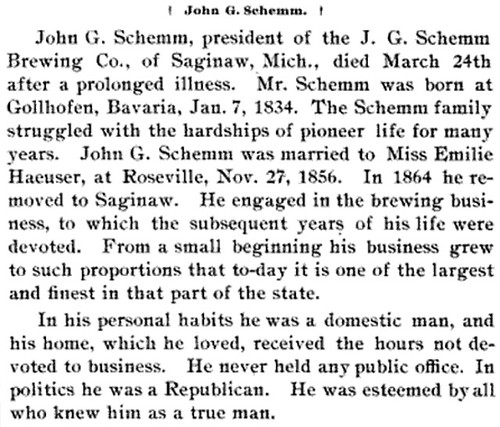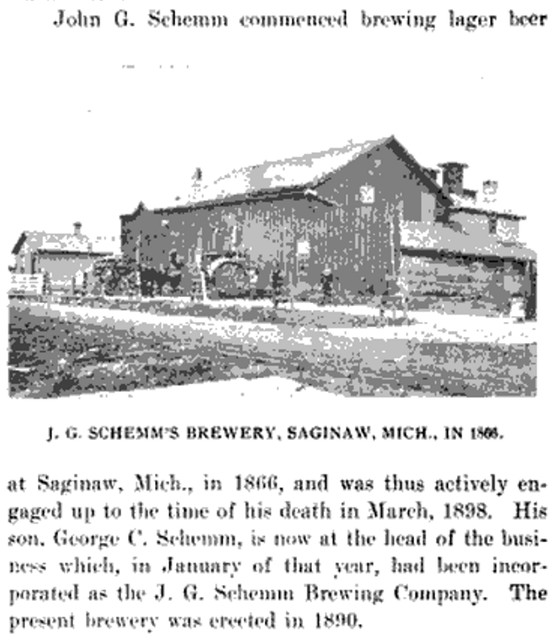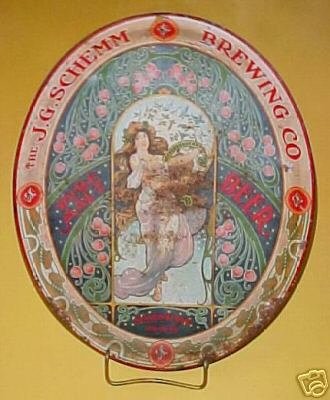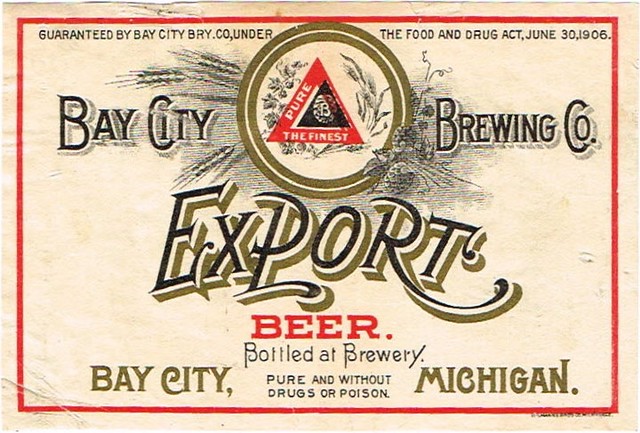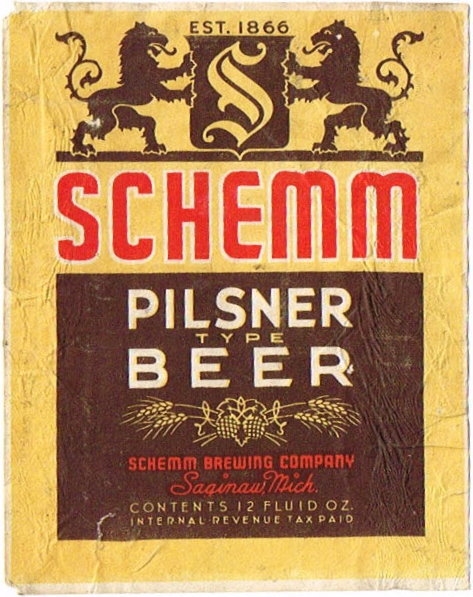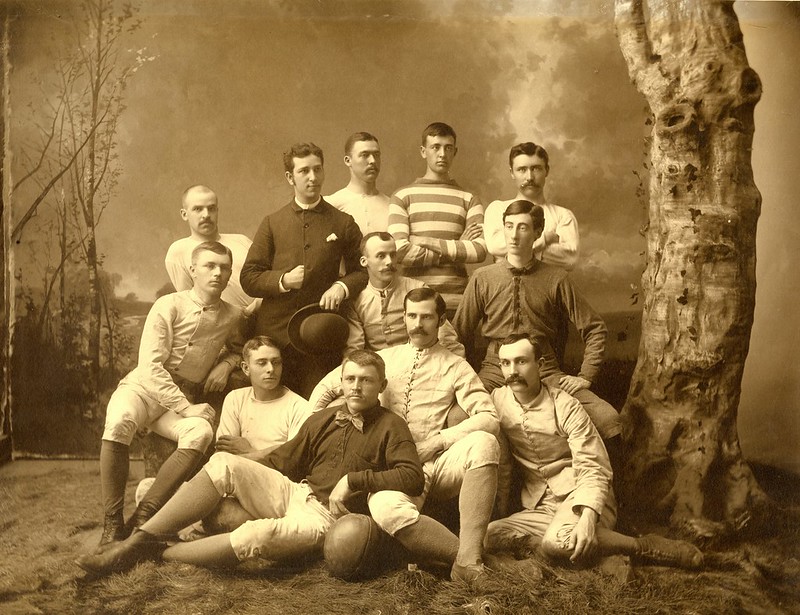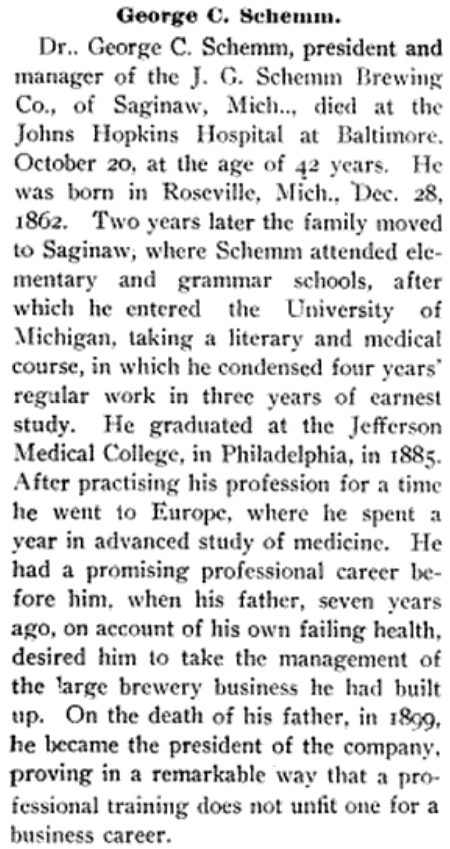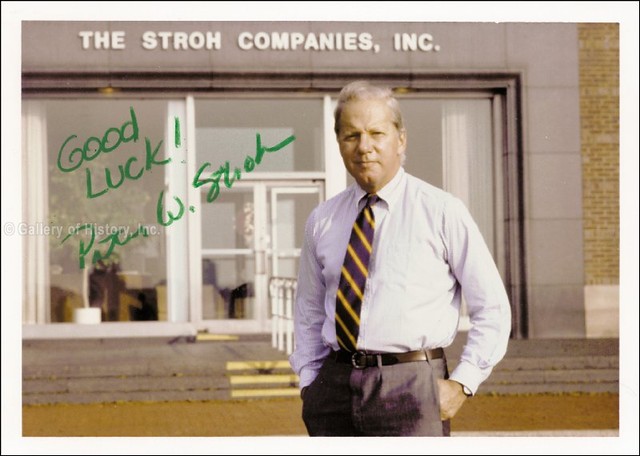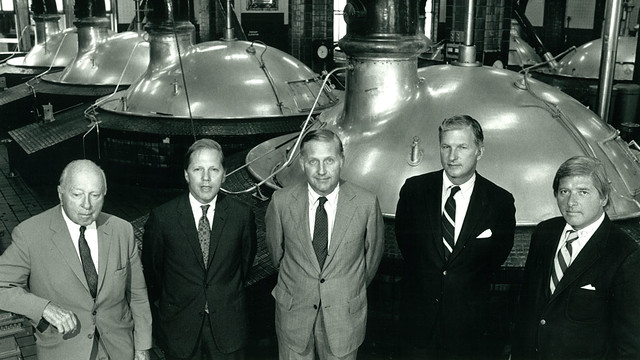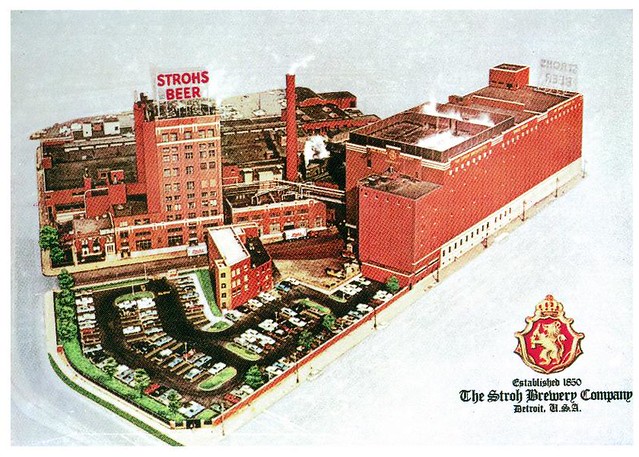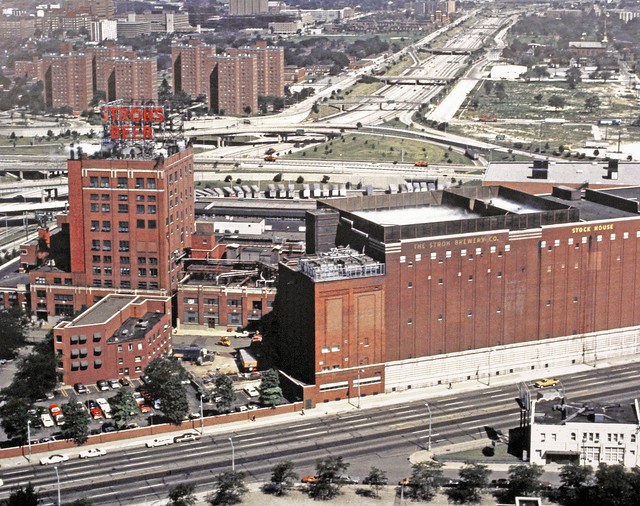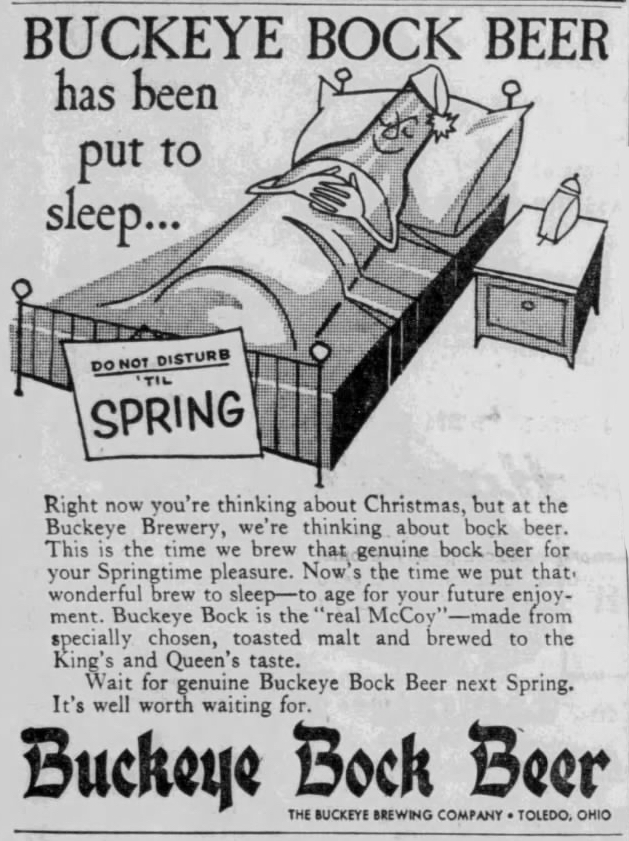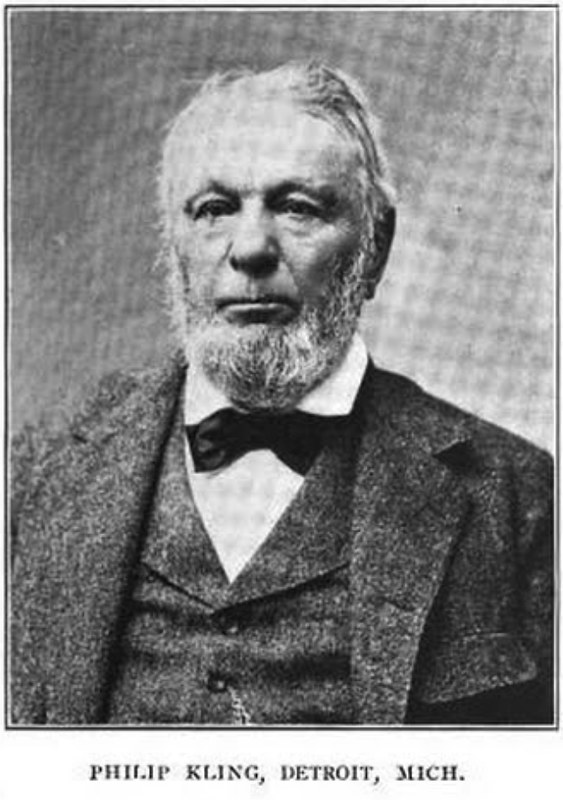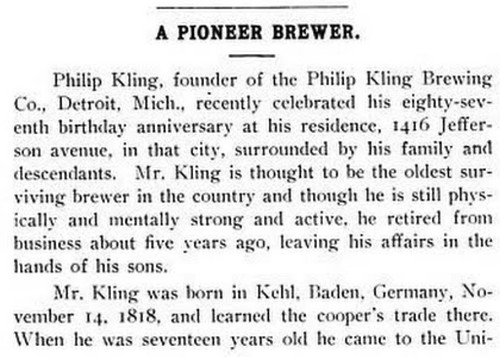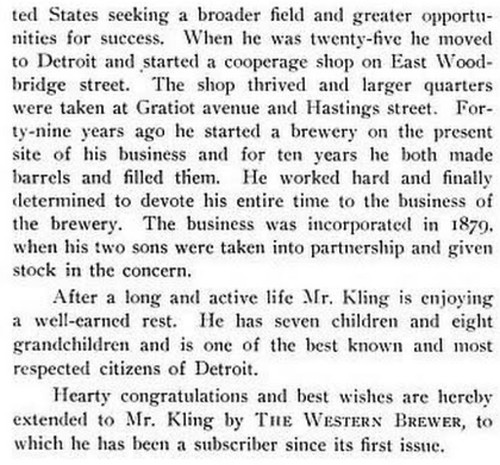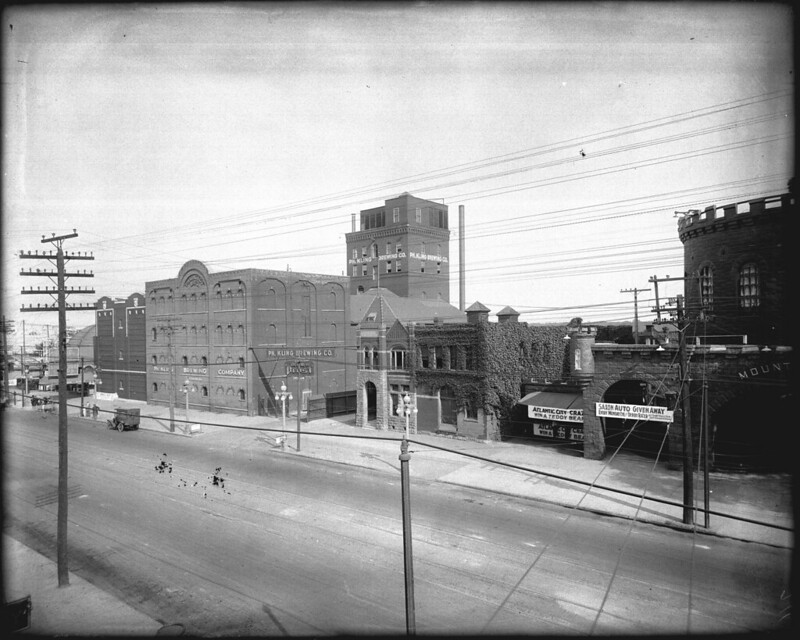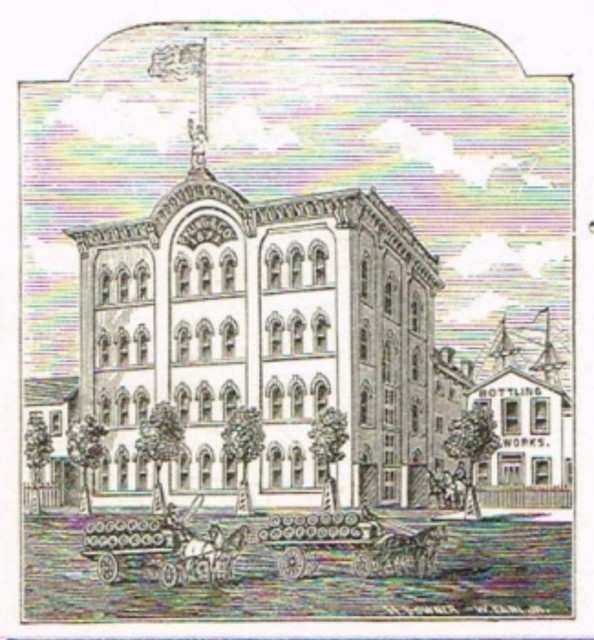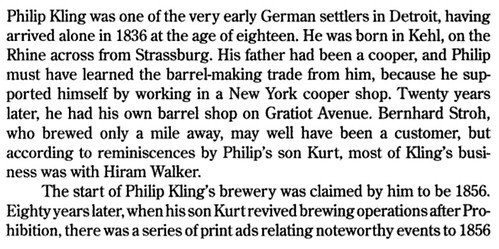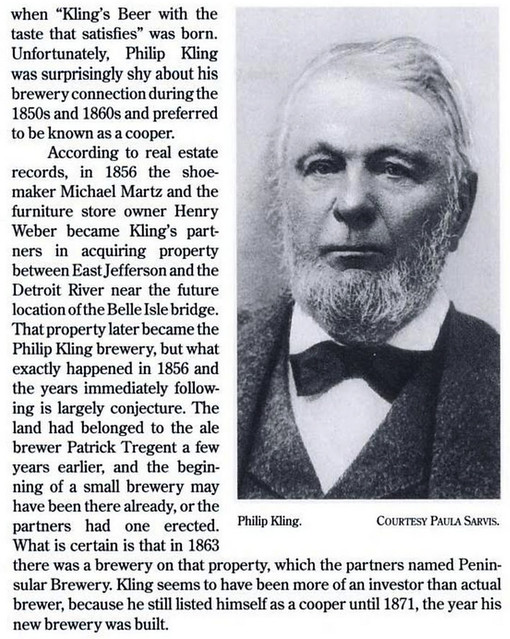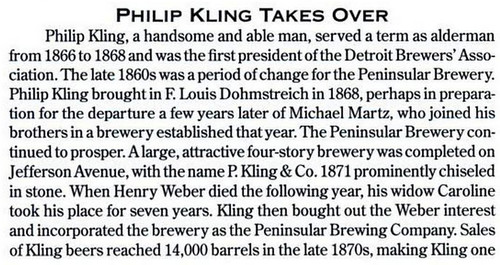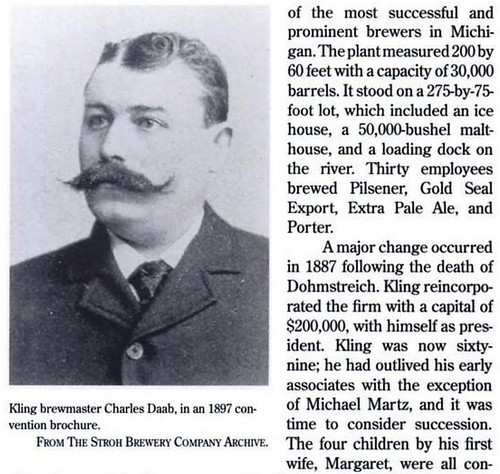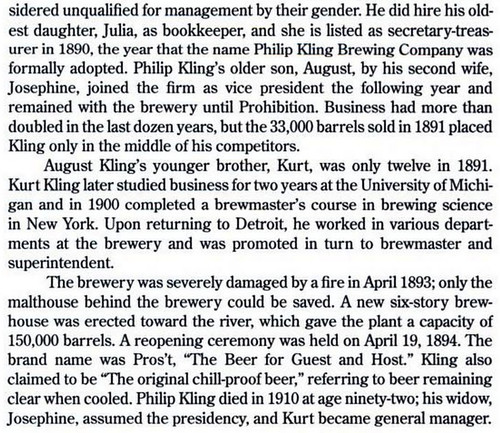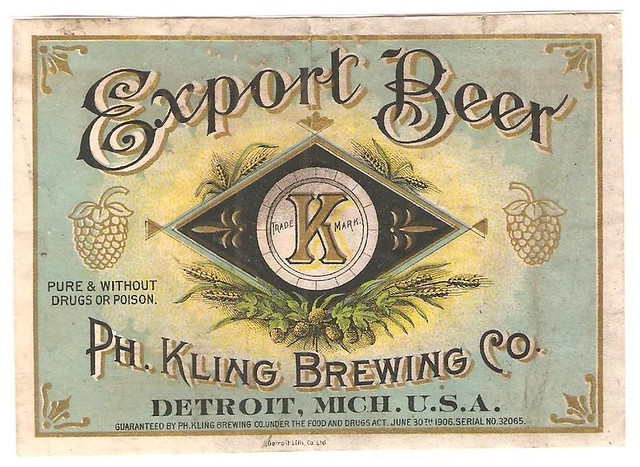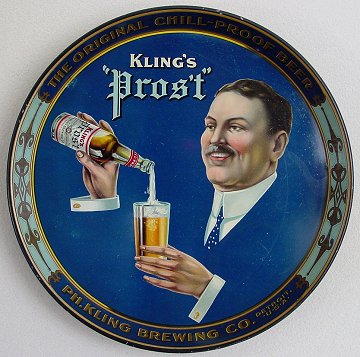
Two years ago I decided to concentrate on Bock ads for awhile. Bock, of course, may have originated in Germany, in the town of Einbeck. Because many 19th century American breweries were founded by German immigrants, they offered a bock at certain times of the year, be it Spring, Easter, Lent, Christmas, or what have you. In a sense they were some of the first seasonal beers. “The style was later adopted in Bavaria by Munich brewers in the 17th century. Due to their Bavarian accent, citizens of Munich pronounced ‘Einbeck’ as ‘ein Bock’ (a billy goat), and thus the beer became known as ‘Bock.’ A goat often appears on bottle labels.” And presumably because they were special releases, many breweries went all out promoting them with beautiful artwork on posters and other advertising. With Spring approaching, there are so many great examples that I’m going to post two a day for a few months.
Tuesday’s first ad is for E and B Bock Beer, which was published on February 24, 1938. This ad was for the Ekhardt and Becker Brewing Co. of Detroit, Michigan, which was originally founded in 1873 by August Ekhardt and Herman Becker. This ad ran in The Muskegon Chronicle, also of Muskegon, Michigan. A second identical ad ran the same day, but in the Monroe Evening News, from Monroe, Michigan, though I’ve included it below because while it’s slighter lighter it’s also a little clearer.
It’s certainly possible I’m wrong, since it is not definitively signed, but it sure looks like the artist was Theodor Geisel, a.k.a. Dr. Seuss. I know he did advertising work for Narragansett Brewing and also Schaefer Brewing, but was unaware of any others until today. If it’s not Seuss, then it’s surely an artist trying to copy his style.
